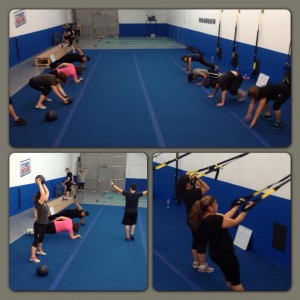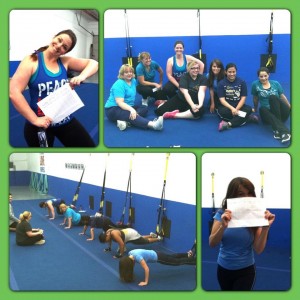How to keep your body in shape and safe while your shape is constantly changing.
For most healthy women, being pregnant isn’t a good excuse to not exercise. In fact, getting in 30 minutes a day of moderate physical activity during pregnancy can help you feel and look your best. However, there are instances when exercise should be avoided or approached with caution.
Here’s what the Chino Hills boot camp suggest you think about when you’re exercising for two.
Health Benefits
While you may feel zapped of energy or awkward because of your size, exercise is an important part of a healthy pregnancy. Physical activity during pregnancy has been shown to provide an array of benefits, including the following:

• improved posture
• decreased fatigue
• relief from backaches, bloating, swelling, and constipation
• lessened stress and an improved mood
• increased stamina for labor and delivery
• decreased likelihood of gestational diabetes
• ability to keep your muscles strong and toned
• improved sleep
What’s Safe?
Most exercises are safe to do while pregnant. Even for beginners, there are plenty of cardio exercises that are great options during pregnancy up until birth. These include walking, swimming, low-impact aerobics, use of the elliptical, and stationary cycling. With these exercises, you can give yourself a total body workout with little risk for injury.
If you’re pregnant and new to the world of exercise, it’s best to consult with a doctor or exercise physiologist before beginning an exercise program. Already physically fit prior to getting pregnant? Then it should be safe to continue your program in moderation. Just remember that you probably won’t be performing at your prior level, so do what’s most comfortable.
Pregnant women should follow a few basic guidelines. First, you’ll want to begin each workout with a few minutes of warm-up and end each workout with 5 to 10 minutes of cool down and gentle stretching. As you work out, wear comfortable clothes and supportive shoes and exercise on a level surface to lessen the chance for injury. Also, you’ll want to avoid over-exertion. An easy way to do this is to make sure you can talk normally during your entire workout. Finally, drink enough water to stay hydrated and eat enough extra calories to meet the needs of your pregnancy.
What’s Not Safe?
Though exercise is important during pregnant, it’s important to recognize that not all exercises are safe during pregnancy. If you’re pregnant, avoid activities that require

you to hold your breath, have an inherent risk of falling (skiing, gymnastics, horseback riding), or are known as contact sports (football, hockey, basketball). Additionally, sports that require running, jumping, or jarring motions (soccer, volleyball, tennis); exercises done while lying on your back (especially during the second and third trimesters); and activities take place in humid, hot weather ought to be avoided during pregnancy.
And for some pregnant women, exercise isn’t an option. For those with health conditions such as heart disease, diabetes, or asthma, pregnancy and exercise don’t mix. In addition, exercise may also be harmful to you or the baby if you have a low placenta, bleeding or spotting, recurrent miscarriages, history of early labor, or a weak cervix. Your doctor may have specific exercise guidelines if you have any of these conditions.
Use Caution
As you know, many changes in your body happen when you’re pregnant. Therefore, you can’t exercise the same way you did before pregnancy. Your growing baby demands more oxygen and energy; your ligaments may lose a little tone, increasing your risk of injury; and your growing belly may cause you to lose your balance, increasing your risk of falls.
Chino Hills bootcamp wants you to listen to your body and adjust your activity accordingly. Immediately stop exercising if you have chest pains; abdominal pain; contractions that won’t stop; feel dizzy; have bleeding; or experience a gush or trickle of fluid, sudden swelling, or a decrease in fetal movement.
Talk with your doctor about returning to exercise following delivery. It may take a few weeks or months to feel strong enough to get back on the exercise track. But proceed slowly and don’t try to overdo it. Before you know it, you’ll be on your way to regaining your pre-pregnancy self!
This blog was submitted by the Chino Hills Personal Trainer from Fit Body Boot Camp Chino Hills.
